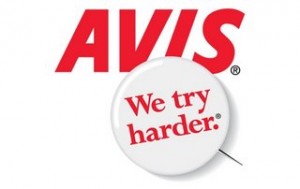
 Five years ago, a conservative Congress and President expanded federal power by enacting the Graves Amendment. This federal legislation reached into state laws and granted immunity to car rental and leasing companies by overriding the laws of states that held the vehicle owners vicariously liable for the acts of their drivers.
Five years ago, a conservative Congress and President expanded federal power by enacting the Graves Amendment. This federal legislation reached into state laws and granted immunity to car rental and leasing companies by overriding the laws of states that held the vehicle owners vicariously liable for the acts of their drivers.
But legislation has persisted against the rental car companies anyway, and conflicts of interest have been exposed as a result. Previously, after an accident involving a rental vehicle, New York attorneys would simply plead in the Complaint that the owners were vicariously liable under Vehicle and Traffic Law § 388. But with that law knocked out by the Graves Amendment (see: Car Rental Immunity Law Held Unconstitutional By Federal Judge (Updated – Reversed)) lawyers have been arguing that the owners were negligent in the way they entrusted the cars to the drivers or in the maintenance of the vehicle. If I were to rent a car with bad brakes from Avis or Hertz, for instance, and then rear-ended someone and was sued, the rental company might well be liable.
But when the defendants answer these suits, all too often there is just one law firm that represents both the driver and the rental company. This, as we say in legalese, is a big, fat no-no.
On June 25th, Supreme Court (New York’s trial level court) Justice Jack Battaglia took on the subject, without the plaintiff even raising the issue by motion. In Vinokur v. Raghunandan Justice Battaglia disqualified the firm of Shapiro, Beilly, Rosenberg & Aronowitz for trying to represent both owner and driver.
The issue arose when the leasing company sought summary judgment, based on the immunity that Congress gave them with the Graves Amendment. Not so fast, wrote Justice Battaglia, pointing out that:
An attorney who undertakes the joint representation of two parties in a lawsuit should not continue as counsel for either one after an actual conflict of interest has arisen because continued representation for either or both parties would result in a violation of the ethical rules requiring an attorney to preserve a client’s confidences or the rule requiring an attorney to represent a client zealously.
And when does this issue arise? Not when the issue is raised by the opposing party or the court, but rather, at the time the reasonable attorney should have been aware of it. According to Justice Battaglia, “in this case a reasonable lawyer should have been aware of the conflict of interest upon receipt of Plaintiff’s Complaint.”
The reason for the conflict should be clear, though it apparently wasn’t to the firms that have attempted the dual representation: If the leasing company is dismissed from the suit, the driver is left holding the bag for the entire verdict. The leasing company has an interest here in saying the car was in perfect working order, while the driver may be puzzling on why, for example, the car didn’t stop as quickly as s/he thought it should when the brakes were hit. Justice Battaglia wrote:
“…a law firm representing both the leasing company and the driver has an inherent conflict of interest where the law firm seeks to move for dismissal of the complaint only as against the leasing company since the driver would be left bearing full liability.”
And it doesn’t matter when the plaintiff raises the issue, or even if the plaintiff raises the issue. Because the driver may have a cross-claim against the leasing company that is completely independent of the plaintiff’s claim against the driver. How does the driver tell his lawyer that the brakes on the car rental didn’t work when the same lawyer represents the car company? How does the lawyers zealously represent the driver by doing adversarial discovery of the rental company’s maintenance records? Justice Battaglia:
In addition, even though a plaintiff may in some circumstances not assert any other basis of liability against a leasing company other than vicarious liability pursuant to Vehicle and Traffic Law § 388, a driver of the leased vehicle may assert, if appropriate, cross-claims against the leasing company for, among other things, having provided the driver with a vehicle with a mechanical defect.
The law firm could have been saved from this, perhaps, if they had the written consent of both of their clients. The court noted:
…the Law Firm may still represent both clients if conditions set forth in Rule 1.7(b) of the Rules of Professional Conduct are met. Rule 1.7(b) provides that, “Notwithstanding the existence of a concurrent conflict of interest under paragraph (a), a lawyer may represent a client if:
(1) the lawyer reasonably believes that the lawyer will be able to provide competent and diligent representation to each affected client;
(2) the representation is not prohibited by law;
(3) the representation does not involve the assertion of a claim by one client against another client represented by the lawyer in the same litigation or other proceeding before a tribunal; and
(4) each affected client gives informed consent, confirmed in writing.” (Rules of Professional Conduct [22 NYCRR 1200.0] Rule 1.7 [b].)
But, since this written consent was not obtained, the firm was disqualified from representing the driver as well as the leasing company. The court didn’t rule on whether the firm could continue to represent the leasing company, but it seems to me that a motion by the defendant-driver’s new counsel to disqualify his former defense firm could easily be made.
On a final note, the encroachment by the federal government on state laws is currently before Congress in the form of the Braley Amendment to undo the damage caused by the appropriation of power with the Graves Amendment. Ironically, people who claim to generally support state power over federal power are opposed, which tells you how political philosophy often takes a back seat to protecting the interests of Big Business from some on the right. Numerous consumer groups support the restoration or rights that had been stripped away by the Graves Amendment. The car rental and leasing companies, of course, want the continued immunity.


